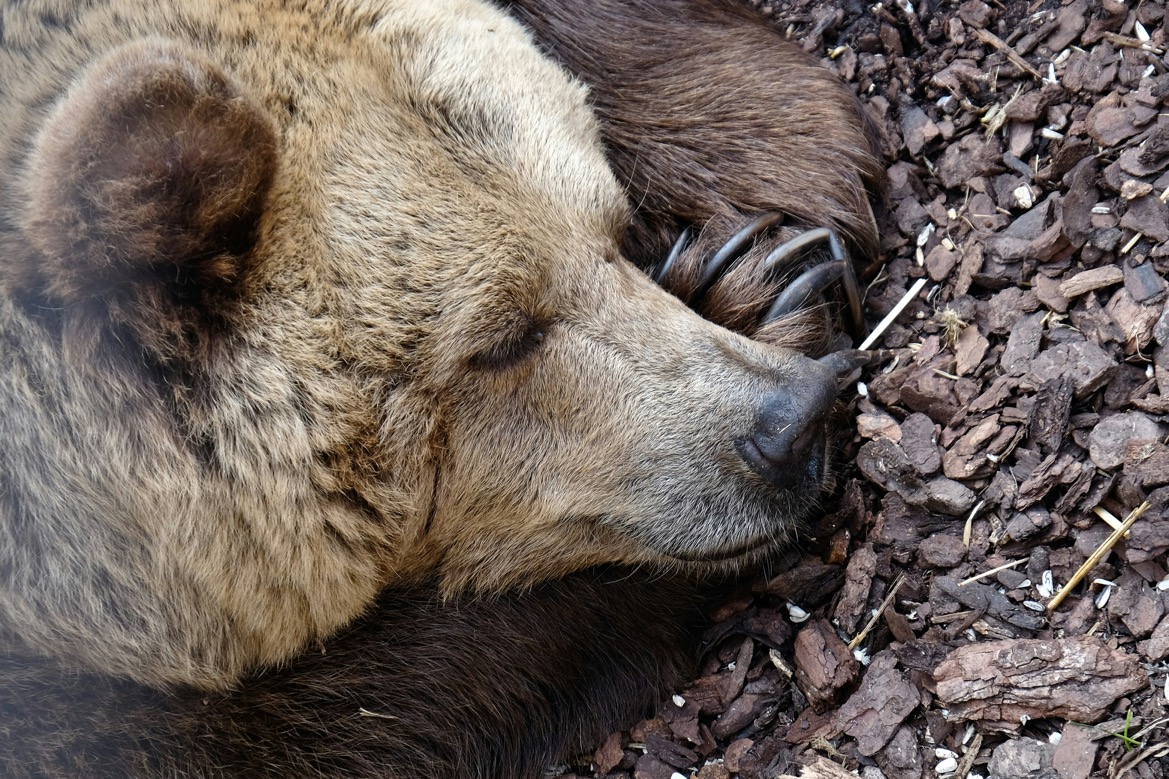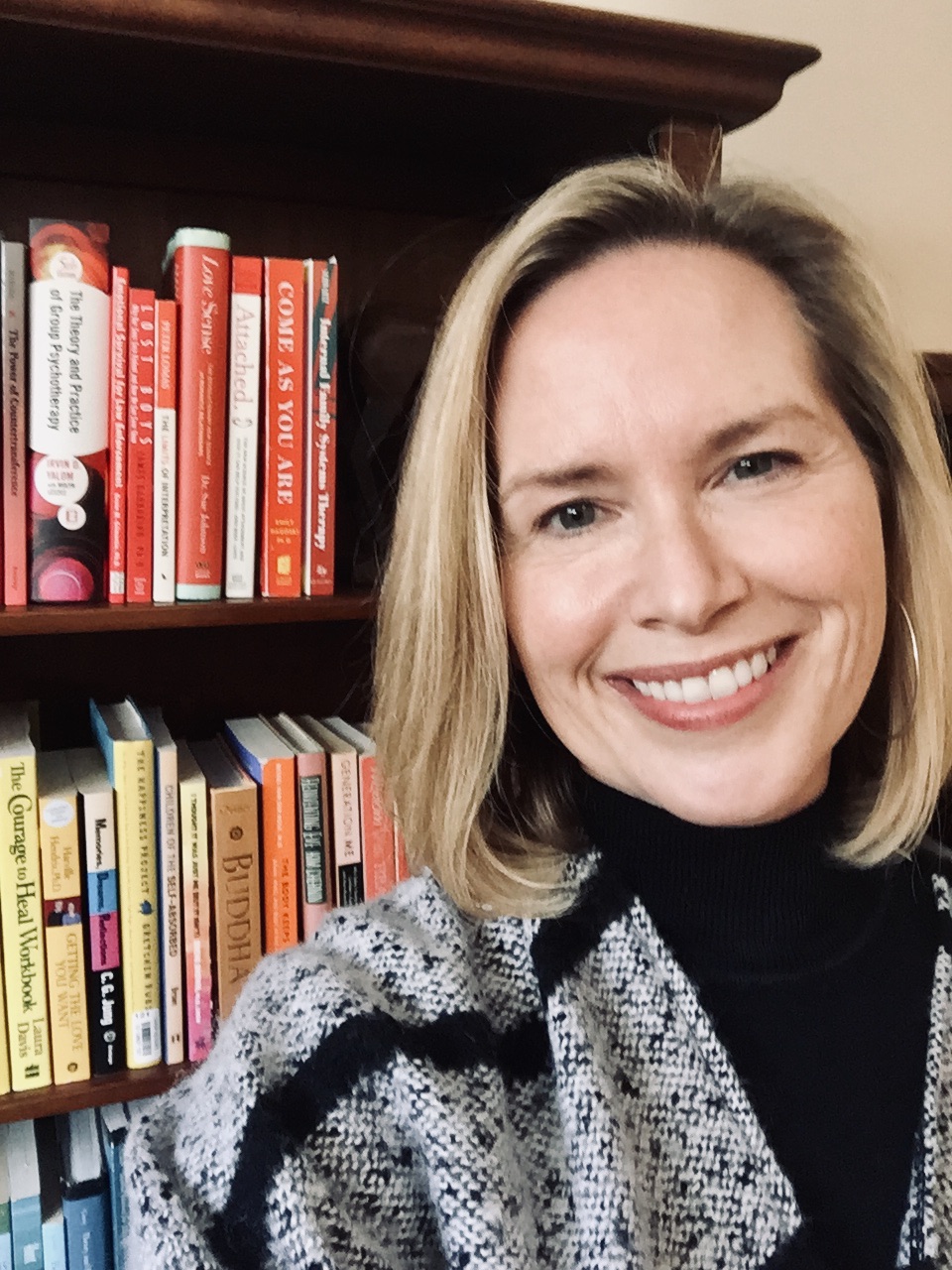Self-Compassion
Don't Shoot the Monkey
August 22, 2023

Thanking a Monkey
by Kaveri Patel
There’s a monkey in my mind
swinging on a trapeze,
reaching back to the past
or leaning into the future,
never standing still.
Sometimes I want to kill
that monkey, shoot it square
between the eyes so I won’t
have to think anymore
or feel the pain of worry.
But today I thanked her
and she jumped down
straight into my lap,
trapeze still swinging
as we sat still.
Family Estrangement Resources
May 03, 2021

This is the week our culture celebrates moms — which is awesome! …unless you're among the 20% or so of people estranged from a family member (like your mom). Shame about having a dysfunctional relationship with a family member leads many people to suffer the pain of that disconnection in silence, especially on family-focused holidays like Mother's Day, Father's Day, Thanksgiving, and Christmas. Dysfunction among family members is not rare — it's very common. And just as romantic relationships sometimes don't work out despite our best efforts, family relationships, too, can become so toxic the healthiest solution is to end the relationship.
Interestingly, while most of us would celebrate the ending of a toxic romantic relationship, there is a surprising (and enduring) cultural pressure around keeping parents and children together at all costs. Just as there once was a significant cultural taboo against divorce, our culture puts a premium on keeping blood relations in contact. Even after experiencing severe mistreatment, people who are estranged from family members often report being scolded to forgive and forget, that nothing is more important and family, as if their decision were a whim, or coming after years of a basically close and happy relationship with their family member. In fact, for those who choose to step back from dysfunctional family relationships, the decision is often a gradual, years-in-the-making, heart-rending process. Estranged people typically have endured histories of abuse, neglect, betrayal, abandonment, and criticism/contempt — and have gone through years of attempting to work through the conflict — before electing to disengage. Pressure to reunite with family members can feel very shaming. Most estranged children of toxic parents report that the most painful part of estrangement is not the loss of their family member, but the sense of judgment from others and the grief of never having the mother-father-sister-brother they needed.
If you are estranged, know you're not alone. Oprah Winfrey, Matthew McConaughey, Brie Larson, Aaron Rodgers, Adele, Mariah Carey, Drew Barrymore, Jennifer Aniston, and members of a certain royal family (ahem) all have distanced themselves from toxic family relationships to take care of themselves. In fact, the emerging research suggests that, for most estranged people, leaving the dysfunctional family relationship was a good decision that created a sense of relief and peace. If you have a loved one who's estranged from a family member, be mindful of the shame they may feel around making this hard decision and avoid counseling them to repair things at all costs. As always, validate them and accompany them in their pain and affirm their right to take care of themselves.
If you'd like more information, here are a few helpful resources on family estrangement:
New York Times: When an Estranged Relative Dies, Some Face Grief, Regret and Relief
GOOP: How Do You Handle Being Estranged from Family?
Good Housekeeping: What Is Estrangement — And Should You Consider It?
Inc.: Estranged from Your Family? Here's Why You Should Stop Feeling Guilty
University of Cambridge: Hidden Voices: Family Estrangement in Adulthood Survey Results
Resilience in Winter: Allowing Emotional Hibernation
February 19, 2021

I just read this lovely article by AEDP therapist Eileen Russell and wanted to share it with you. Some quotes that really struck me:
“I think of resilience as comprising processes that human beings use on behalf of the self to both survive adversity and also to thrive in favorable conditions. To my mind, resilience is not about being “strong” in the sense of being unaffected by what life throws at us. Increasingly I think it is truly about flexibility. How do we stretch into spaciousness and opportunity when it presents itself for our growth and expansion and also know when and how to contract and save energy when conditions are truly inhospitable?”
“So, can human beings contract without shutting down completely? Can we find ways to surrender to the withdrawal that happens under experiences of chronic stress without turning against ourselves or each other? If we let go of the unrealistic expectation that we could be feeling so much better if only we (fill in the blank), might we experience this mid-winter period of our lives as slightly more bearable and circumscribed? Can we develop some gentleness toward our failure to “overcome” our circumstances?"
“It is true that none of us can go to sleep for the winter. But perhaps metaphorically it is helpful to imagine that nature may have endowed people with capacities to take in less and to put out less when it is necessary for our psychic survival. If we think of this state as a kind of psychological hibernation we might be less inclined to pathologize it or to fight it as if we could actually create the stimulation and possibilities that are available to us under other circumstances. If there is a season for everything, perhaps this time invites us to rest and let go of our need to turn reality into what it is not. If we allow for a certain psychological hibernation now, we might trust ourselves to welcome “spring” when it comes. Because it will come.”
A 5-Minute Meditation
March 16, 2020

Research consistently tells us that meditation is one of the best things you can do for yourself. In the midst of all this stress and uncertainty, remember to take time each day to breathe deeply and to be in the present moment. I wanted to share a lovely, short meditation that will help you feel calmer, more present, and more grounded. Sending you peace and love.
What You Practice Grows Stronger
February 29, 2020

One of my clients sent me this great TED talk from Dr. Shauna Shapiro on mindfulness. Dr. Shapiro shares a lovely bit of wisdom she received while struggling as a younger woman: What you practice grows stronger. The implication, of course, is that it is up to us to decide which parts of our selves we want to feed — the anxious, judgmental, avoidant, reactive parts or the compassionate, present, calm, and centered ones.
On that note, she explains that the key to growth and change is not just paying attention, but HOW we pay attention. So many of us can be hard on ourselves, often thinking that if we are tough on ourselves, we can will ourselves to change. However, unkind, judgmental attention that triggers shame literally leaves our brains incapable of growing and learning. (This echoes the evidence-based work on mindful self-compassion espoused by Kristin Neff and Christopher Germer — and taught locally by Dr. Luana Coloma Cook & Dr. Sean Cook.)
So, enjoy this TED talk, and I hope you'll be inspired to be a little kinder to yourself today…and every day.
The Greatest Love of All?
October 03, 2019
As an attachment-oriented psychologist, I've always understood and valued the importance of having safe and close relationships with cherished other people. Over the past few years, I've also come to understand the importance of the relationship we have with our selves. Every day I watch in awe as my clients find a voice inside them that is courageous, compassionate, and centered — clear about who they are and what they need, and capable of providing comfort to young parts of them that never got the care they needed. It moves me so much. Perhaps it's because I've experienced what a difference finding that voice has made in my own personal growth and relationships.
In any case, I'm not sure if Whitney Houston was totally right that loving yourself is the greatest love of all, but, you know, she's definitely on to something! And in a less power-ballad-y, more eloquent way, that's what this beautiful poem is about. I hope you enjoy it and that it helps you experience the joy of connecting with yourself in a loving way.
Love After Love
by Derek Walcott
The time will come
when, with elation,
you will greet yourself arriving
at your own door, in your own mirror,
and each with a smile at the other's welcome,
and say, sit here. Eat
You will love again the stranger who was yourself.
Give wine. Give bread. Give back your heart
to itself, to the stranger who has loved you
all your life, whom you ignored
for another, who knows you by heart.
Take down the love letters from the bookshelf,
the photographs, the desperate notes,
peel your image from the mirror.
Sit. Feast on your life.
In any case, I'm not sure if Whitney Houston was totally right that loving yourself is the greatest love of all, but, you know, she's definitely on to something! And in a less power-ballad-y, more eloquent way, that's what this beautiful poem is about. I hope you enjoy it and that it helps you experience the joy of connecting with yourself in a loving way.
Love After Love
by Derek Walcott
The time will come
when, with elation,
you will greet yourself arriving
at your own door, in your own mirror,
and each with a smile at the other's welcome,
and say, sit here. Eat
You will love again the stranger who was yourself.
Give wine. Give bread. Give back your heart
to itself, to the stranger who has loved you
all your life, whom you ignored
for another, who knows you by heart.
Take down the love letters from the bookshelf,
the photographs, the desperate notes,
peel your image from the mirror.
Sit. Feast on your life.
How Easy I Am to Crush
May 23, 2019
One of my clients shared this amazing spoken word performance by Jae Nichelle. I so hope you'll take just 3 minutes to listen to it. She talks so beautifully and powerfully about her struggles with her anxious, critical inner voice.
This really demonstrates how strategies we initially use to protect ourselves end up creating challenges for us, becoming oppressive and dangerous themselves. Her anxiety is trying to protect her from embarrassment or rejection, and yet the poet shares with us the terrible cost of all that anxiety.
And because parts of us feel we still need that protection — "how easy I am to crush" she tells herself — we often can't let go of the old strategies, no matter how hard we try. "I have been fighting her for control of our house for years…[but] she's the longest relationship I've ever had…the only relationship I can count on."
Meeting problematic parts with empathy and understanding (and often the help of a caring therapist) is, in my experience, the only way to get those parts of us to consider new strategies and to move from a "boxing match" to a caring relationship with all the parts of you.
This really demonstrates how strategies we initially use to protect ourselves end up creating challenges for us, becoming oppressive and dangerous themselves. Her anxiety is trying to protect her from embarrassment or rejection, and yet the poet shares with us the terrible cost of all that anxiety.
And because parts of us feel we still need that protection — "how easy I am to crush" she tells herself — we often can't let go of the old strategies, no matter how hard we try. "I have been fighting her for control of our house for years…[but] she's the longest relationship I've ever had…the only relationship I can count on."
Meeting problematic parts with empathy and understanding (and often the help of a caring therapist) is, in my experience, the only way to get those parts of us to consider new strategies and to move from a "boxing match" to a caring relationship with all the parts of you.
